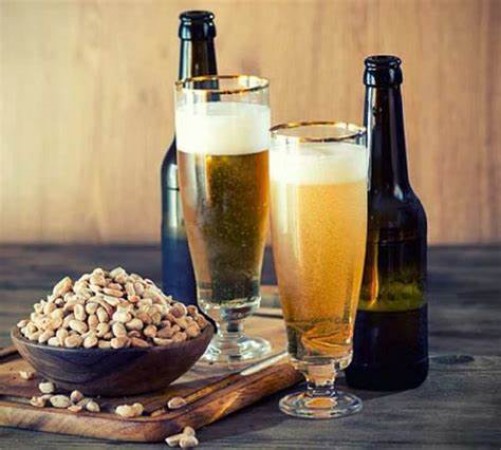
Winter is a season that brings its own set of challenges, including the dreaded cold and flu season. While many of us reach for comfort foods and hot beverages to ward off the chill, it's essential to be mindful of what we consume during this time. Some foods and habits can exacerbate cold symptoms and make us feel even worse. In this article, we'll explore what you should avoid during a cold to prevent any further complications.
When you're feeling under the weather, it's tempting to reach for sugary snacks or desserts. However, consuming excess sugar can weaken your immune system, making it harder for your body to fight off the cold virus. Stick to healthier options to support your immune system.
You might have heard that dairy products can increase mucus production. While this isn't entirely accurate, some people may be sensitive to dairy when they have a cold. It's best to avoid them if you suspect they worsen your symptoms.
Spicy foods can help clear congestion, but they can also irritate your throat and stomach, making your cold symptoms more uncomfortable. Use them in moderation.
Alcohol can dehydrate your body, which is the last thing you need when you're trying to recover from a cold. It's best to skip alcoholic beverages until you're feeling better.
Caffeine is another dehydrating substance that can disrupt your sleep patterns. Opt for caffeine-free herbal teas or warm water with lemon instead.
Fried and greasy foods can be heavy on your stomach and may worsen nausea and digestive issues that often accompany a cold. Choose light, easy-to-digest meals instead.
Processed foods are often high in salt and preservatives, which can exacerbate inflammation and prolong your recovery time. Opt for fresh, whole foods whenever possible.
Avoid ice-cold beverages as they can irritate your throat and make congestion worse. Opt for warm liquids like herbal tea, broths, or warm water with honey.
Cough drops can provide relief, but using them excessively can lead to a numbing effect in your throat. This may mask symptoms and delay your recovery.
Nasal sprays can offer temporary relief from congestion, but overusing them can lead to dependency. Follow the recommended usage guidelines carefully.
One of the biggest mistakes you can make during a cold is not getting enough rest. Adequate sleep is essential for your body to heal and fight off the virus effectively.
Staying hydrated is crucial when you're sick. Water helps thin mucus, keeps your throat moist, and supports your body's overall healing process.
Even though you may not have a strong appetite, it's essential to incorporate fruits and vegetables into your diet. They provide vital nutrients that support your immune system.
A warm bath or shower can help relieve congestion and relax your body. Adding a few drops of eucalyptus oil can enhance the steam's effectiveness.
Avoid self-medication with over-the-counter drugs without consulting a healthcare professional. Some medications may interact with your symptoms or other medications.
While focusing on self-care, don't forget about good hygiene practices. Wash your hands frequently to prevent spreading the virus to others.
Consider getting a flu shot to reduce the risk of contracting the flu, which can further complicate a cold.
If your cold symptoms worsen, or if you experience high fever, severe sore throat, or difficulty breathing, seek immediate medical attention.
Stress can weaken your immune system. Take this time to relax, watch your favorite shows, and allow your body to heal.
Finally, don't rush back to your normal routine. Give your body the time it needs to fully recover before resuming your regular activities. By avoiding these common pitfalls during a cold, you can ensure a speedier recovery and minimize the risk of complications. Remember to listen to your body and prioritize self-care to bounce back to good health as quickly as possible.
Uniting for Sustainable Cotton: World Cotton Day 2023